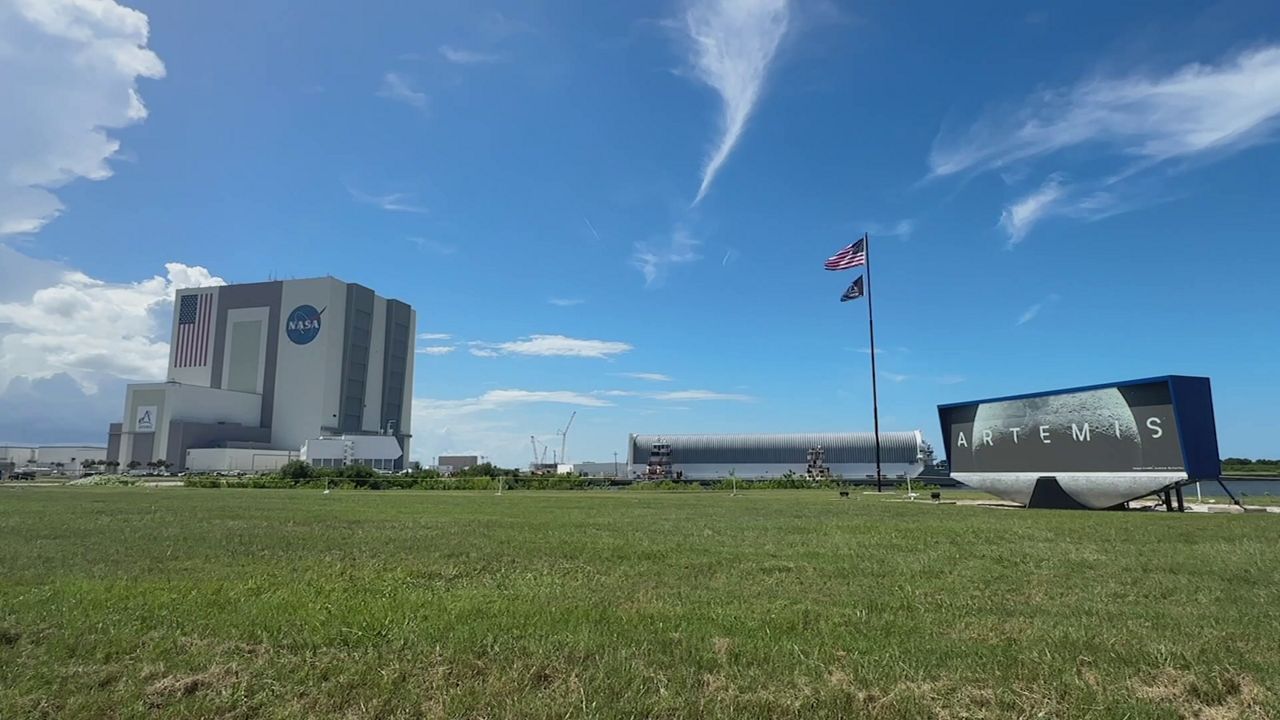KENNEDY SPACE CENTER — Nearly 1,000 employees have accepted resignation offers, according to NASA late Thursday afternoon, according to the U.S. space agency.
What You Need To Know
- Hundreds of NASA employees have accepted resignation offers, according to the U.S. space agency
- A government program allows employees to resign while keeping all of their pay and benefits until Sept. 30, 2025
“About 5% of NASA’s workforce accepted the resignation offer in the Deferred Resignation Program,” stated Office of Communications News Chief Cheryl Warner in an email to the press.
This is a government program that allows employees to resign while keeping all of their pay and benefits until Sept. 30, 2025.
Out of about 18,000 employees at the U.S. space agency, it means 900 workers have accepted the resignation offer.
On Wednesday afternoon, Warner sent out an email that stated the U.S. space agency is working to validate hundreds of employees who accepted the offer by the U.S. Office of Personnel Management (OPM) for the Deferred Resignation Program.
"NASA continues to work as quickly as possible to comply with the guidance and direction provided by the U.S. Office of Personnel Management (OPM) for the Deferred Resignation Program and probationary employees. The agency is in the process of validating hundreds of employees who responded to the deferred resignation offer before the deadline. Some probationary employees have taken the deferred resignation offer and those individuals have been, or will be, on administrative leave by the end of this week. NASA is working with OPM on exemptions for those in the probationary period in mission critical functions,” explained Warner.
In the latest email on Thursday afternoon, she stated that a small group of the 900 workers are probationary employees who were allowed to enter into the Deferred Resignation Program.
“After working with OPM and a careful evaluation of our workforce and mission requirements, probationary separations will be performance-based or voluntary in accordance with agency policy. The agency will continue to monitor all employee performances and take swift action as appropriate with any issues, ensuring American citizens have an excellent and efficient workforce at NASA,” Warner added.
The OPM’s focus is to return people to the office, reforming the federal hiring process “to focus on merit” and allow employees to resign while keeping all of their pay and benefits until Sept. 30, 2025.
In a Feb. 14 email to NASA employees, Acting Administrator Janet Petro said the U.S. government is working on “large-scale reductions” to the government workforce.
“Your leaders are tracking the recent executive order calling for agencies to undertake preparations to initiate large-scale reductions in force, among other things. NASA intends to comply with this and all executive orders. We are currently awaiting further guidance and will keep you posted as we learn more,” stated Petro in the email that was obtained by Spectrum News.
She also stated in the same email that the unofficial Department of Government Efficiency, or better known as DOGE, is at NASA, and it was expected it would review NASA contracts.
Between the estimated 900 resignations and the possibility of layoffs at NASA, it is not known how this will impact current and future projects and missions, such as the Artemis moon mission that will see the return of humans to the lunar body.
U.S. Rep. Maxwell Alejandro Frost, D-FL, who is on the Committee on Science, Space and Technology, said he is worried about mission delays.
"There's a group of (DOGE employees) who are uneducated on the departments they're walking into, don't know what NASA needs to complete their mission. We already had to delay the Artemis II a launch a year. What do you think is going to happen when we find out that more technicians, more scientists, people like this are being laid off, fired or took that deferred resignation offer from the administration, which, by the way, isn't a for sure thing," Frost said on Friday to Spectrum News.
He stressed that any delay is bad for America and with countries like China, there is another space race going on.
"... but countries like China, they're moving forward, straight forward on space. And they, they're racing us right on getting to Mars and going back to the moon. And any delay is bad for our country. It's bad for our national security," he said.
One of the more notable people who have resigned is NASA Associate Administrator Jim Free, who will be retiring on Saturday, Feb. 22, after more than 30 years at NASA.
“During his tenure as associate administrator since January 2024, NASA added nearly two dozen new signatories of the Artemis Accords, enabled the first Moon landing through the agency’s CLPS (Commercial Lunar Payload Services) initiative to deliver NASA science to the lunar surface, launched the Europa Clipper mission to study Jupiter’s icy ocean moon, and found molecules containing the ingredients for life in samples from asteroid Bennu delivered to Earth by NASA’s OSIRIS-REx (Origins, Spectral Interpretation, Resource Identification and Security–Regolith Explorer) spacecraft,” NASA stated in a statement.




